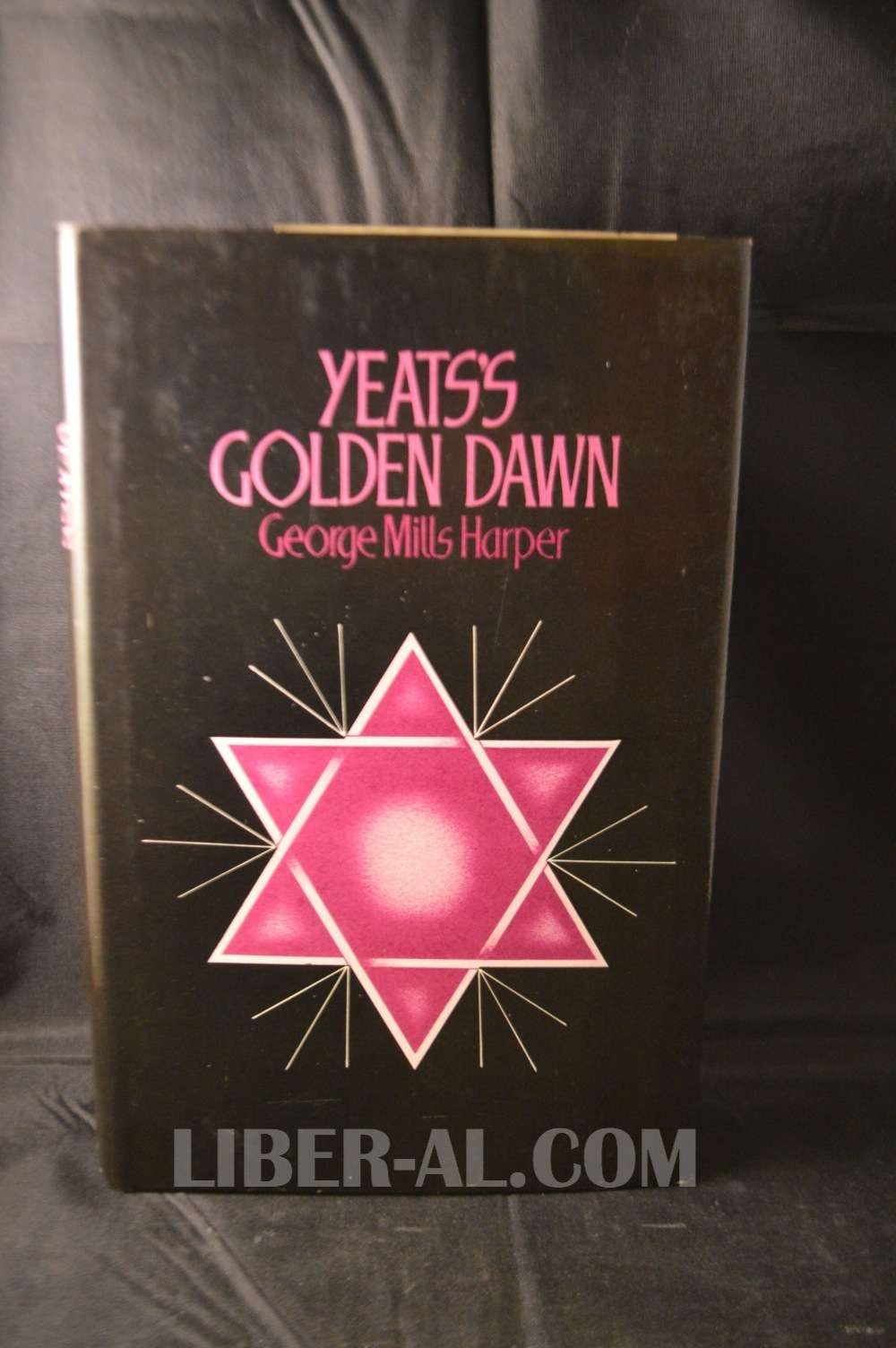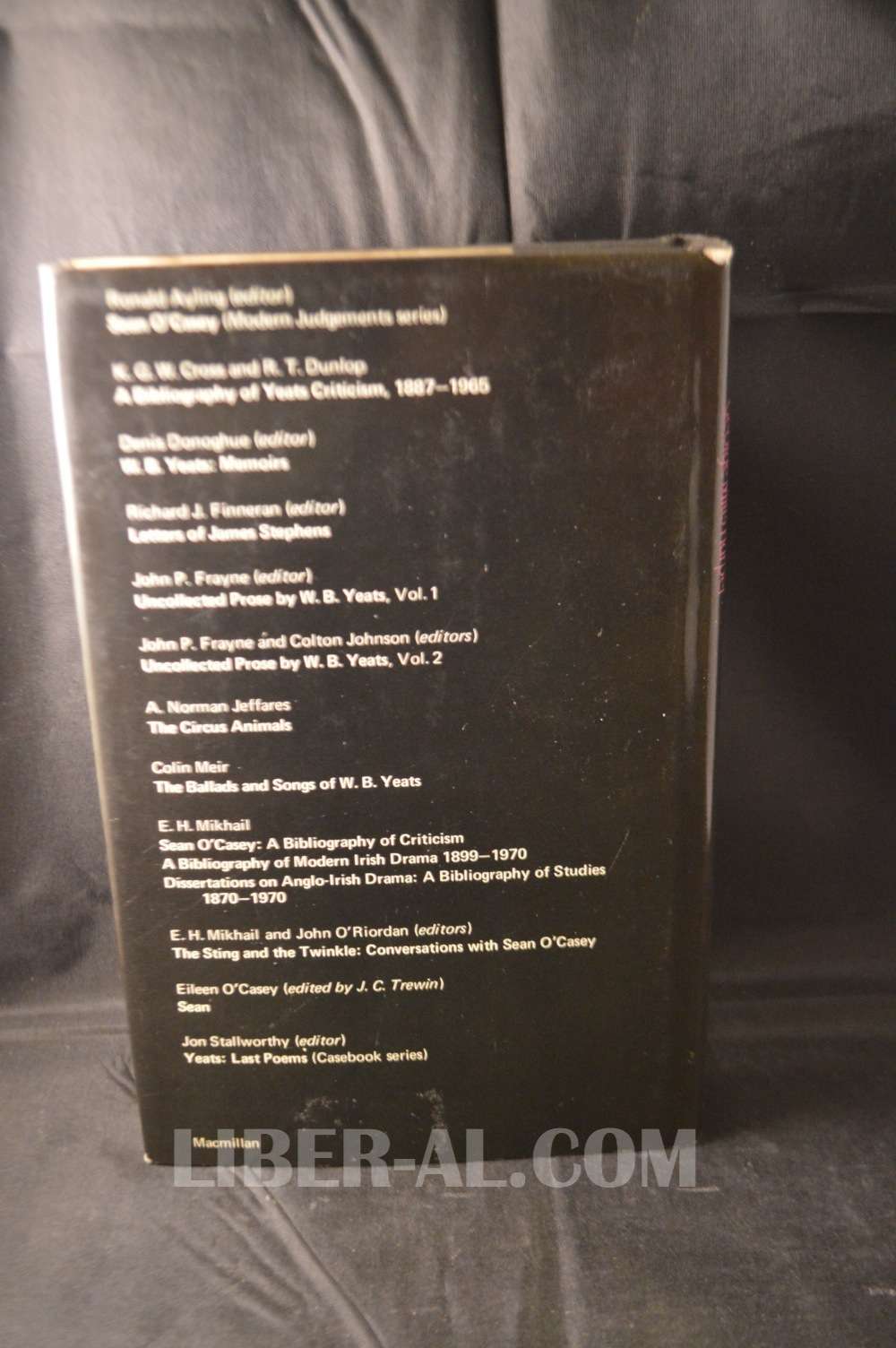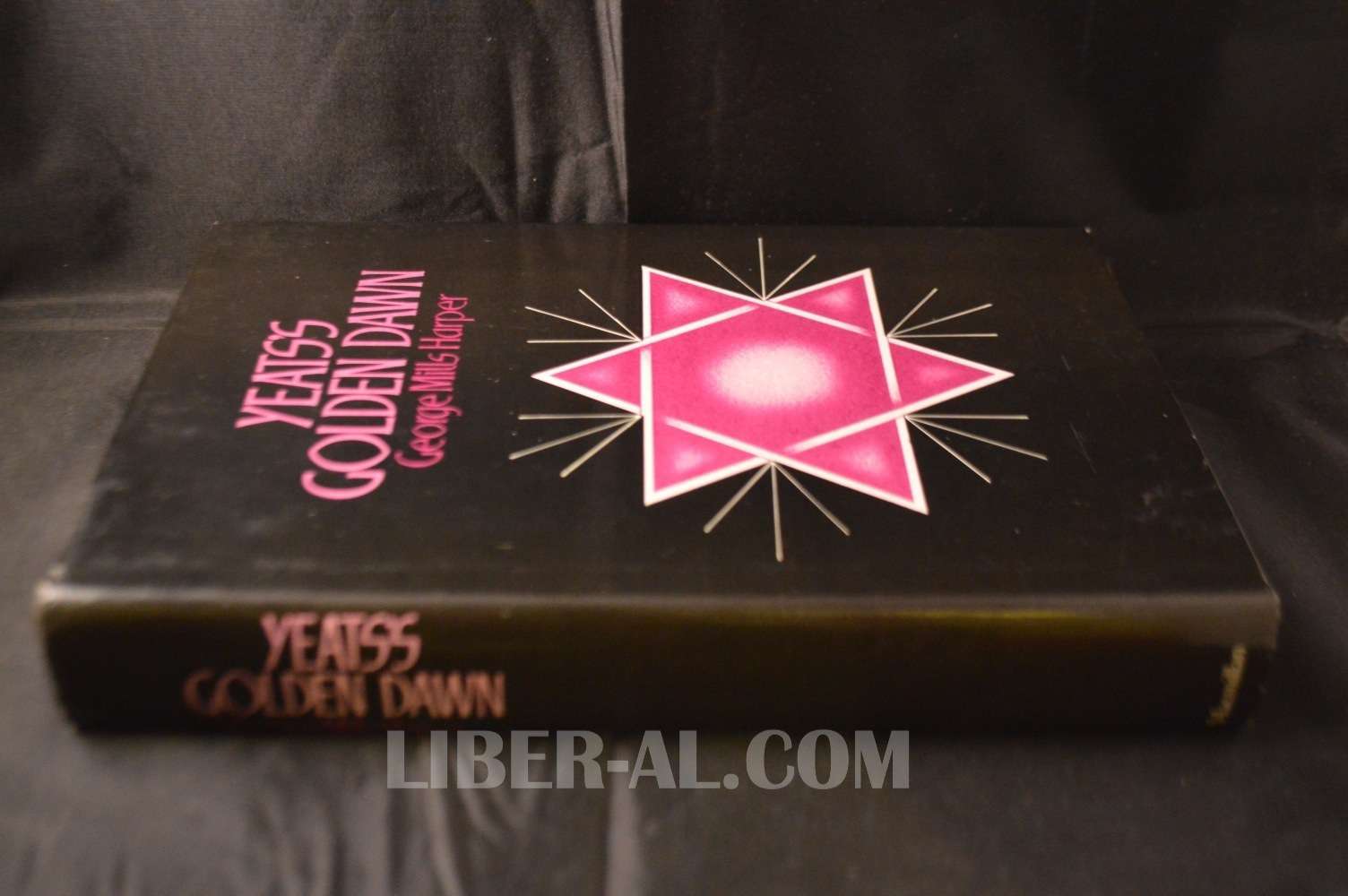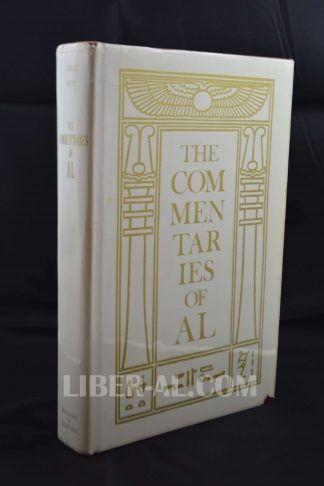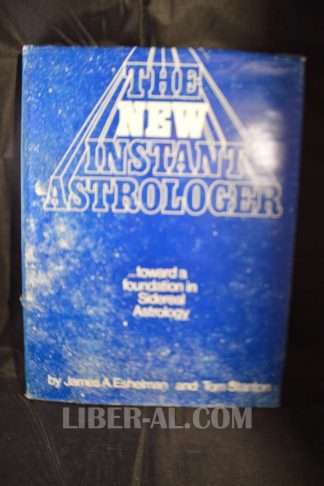Description
Harper, George Mills
The Macmillan Press, Basingstoke, Hampshire, UK, 1974. Hardcover. First Edition. Small bookseller label on initial blank. Near Fine in Near Fine clipped dust-jacket.
Yeats’s Golden Dawn: The Influence of the Hermetic Order of the Golden Dawn on the Life and Art of W.B. Yeats.
Years after the events related to two great quarrels in the Second Order of the Golden Dawn, Yeats described the period of April 1900 to February 1901 as the ‘worst part of life’. Quoting copiously from unpublished documents and identifying most of the principals in these two quarrels, Professor Harper outlines the issues and discusses Yeats’s participation. Since he had a leading role in both, he explored his philosophical essays or open letters to the members of the Second Order, and in one long essay defended ritual magic. These essays and the responses from other members of the Second Order are included in appendixes in addition to summarising the issues and commenting upon the written documents, Professor Harper relates Yeats’s other quarrels with his colleagues in the Order. In particular, considerable light is cast upon other essays, The Shadowy Waters, and the struggle with the intractable materials of his unpublished novel, ’The Specled Bird’. Professor Harper’s study emphasises the great significance of the Order of the Golden Dawn in Yeats’s art and life. An active member for at least thirty-two years, Yeats was the leading authority on ‘Mystical Philosophy’ and was invited to be chief of the London Temple as late as 1921.
George Mills Harper is Professor of English at Florida State University, having previously taught at the University of North Carolina, the University of Florida, and Virginia Polytechnic Institute. He is the author of The Neoplatonism of William Blake, Yeats’s Quest for Eden and a large number of papers on Yeats. He is a contributing editor to A Concordance to the Writings of William Blake and co-editor (with Kathleen Raine) of Thomas Taylor the Platonist, and he has contributed a number of articles to learned journals.

